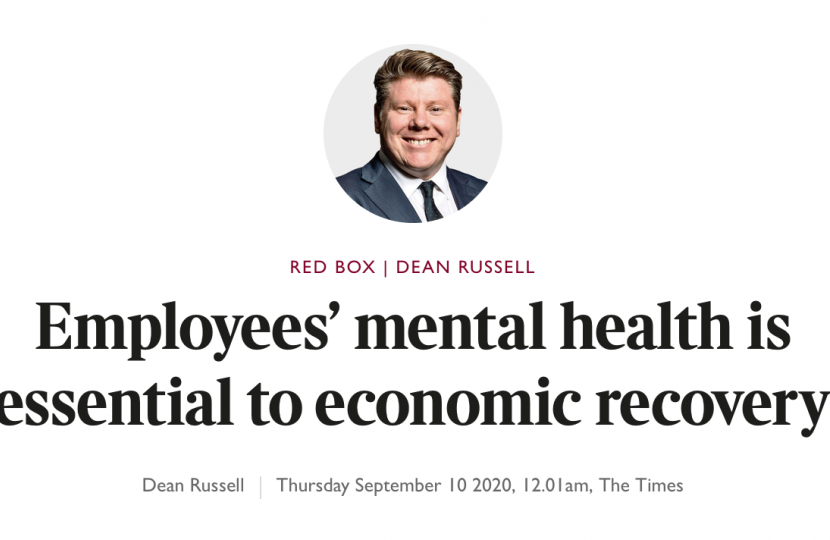
The challenges we have faced in response to Covid-19 over the past six months have been felt across the nation, and our economy has been impacted enormously. From making difficult decisions on furloughing staff to moving to an entirely digital operation, many businesses have had to adapt to a new way of working to survive.
The UK government introduced some of the most comprehensive financial support to businesses of any country in the world. This included furloughing 9.6 million workers and providing 900,000 small business grants.
However, we know from the Organisation for Economic Co-operation and Development that the UK economy, the most globalised in Europe, was hit exceptionally hard. New data from FirstCare, the absence management company, found that during the pandemic there were 32,397,966 days of unplanned leave taken in the UK, which equates to a £4.2 billion loss. It is essential that the government grapples with the significant economic fallout from this pandemic pre-emptively.
While we all hope the UK will not face a second wave of Covid-19, it is important that we prepare for all eventualities, and harness learnings from the first wave to minimise further damage. The recovery of the British economy relies on the ability of businesses across all sectors to manage employee wellbeing in the face of more uncertainty. Keeping employees healthy and working, where there is capacity to do so, will support the recovery of our economy.
It is undeniable that the peak of employees taking unplanned leave in April as a result of illness or need to care for a dependent caused huge unexpected disruption to the economy. While much focus has been given to unemployment figures, it is imperative that we keep people in jobs and establish systems to maintain their health and wellbeing, both personally and for business productivity. This issue pre-dates Covid-19 and will not disappear unless we utilise data to identify patterns, predict pressure points and give employees the support they deserve.
Without timely and effective intervention some conditions could cause severe long-term damage. Mental health has been a particularly pertinent topic throughout the pandemic, not least because many of us moved to home-working routines that can be hard to manage. This has also made it difficult for companies to identify when problems arise. It is much more challenging to assess mental health and wellbeing remotely.
In the Beatles song Eleanor Rigby, they spoke of her “wearing the face that she keeps in a jar by the door”, but in modern times it is likely that employees put on their own “mask” of a brave face for their daily conference call while suffering behind the scenes. FirstCare found that 60 per cent of workers who report two mental health absences will leave their job before reporting a third, so it is vital that businesses prioritise this issue.
And it is not just mental health issues that have been flaring up during the pandemic. The data shows that from May onwards, other illnesses such as gastrointestinal infection, musculoskeletal conditions and even the common cold have caused higher total levels of reported absence than Covid-19. This suggests that we are already moving back to a pre-pandemic pattern of unplanned absences, which runs the risk of becoming unmanageable for organisations already feeling the pressure of a challenging economic forecast.
Whether we experience a second wave of Covid-19 or not, British businesses need to change their approach to employee wellbeing to minimise health issues and keep people in work. This will prevent economic damage being exacerbated by avoidable absences.
As we can see from the success of a localised approach to lockdowns, the pandemic has demonstrated the value of utilising data to enable swift, methodical and agile intervention. We now have an opportunity in both government and business to embrace data at a larger scale, which in turn will safeguard and future-proof employee wellbeing.
Dean Russell is the Conservative MP for Watford
https://www.thetimes.co.uk/article/employees-mental-health-is-essential-to-economic-recovery




